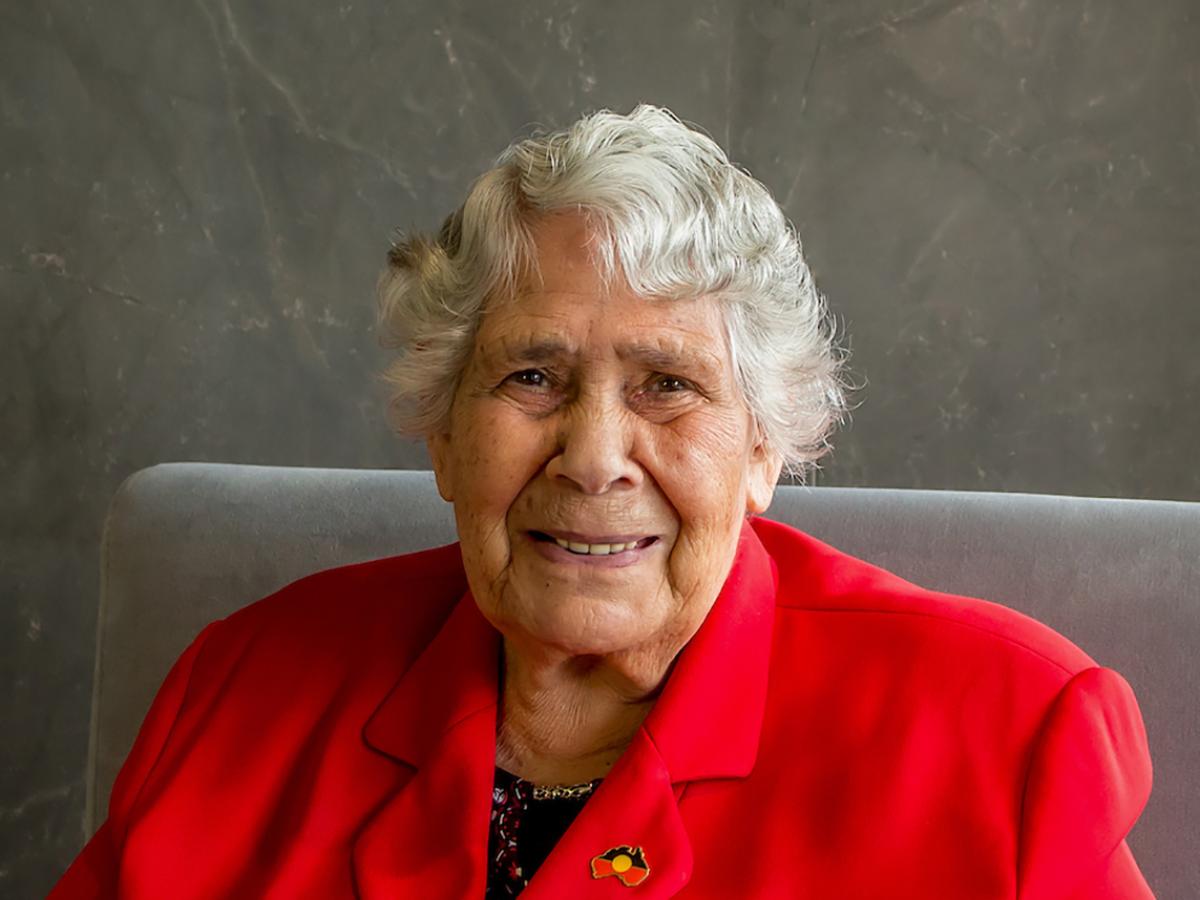One of Australia’s most highly respected Aboriginal leaders, Dr Lowitja O’Donoghue AC CBE DSG has passed aged 91. The Yankunytjatjara woman, who fought endlessly for the rights of her people, died surrounded by family yesterday.

Dr Lowitja O’Donoghue AC CBE DSG. Photo by Leanne King, 2020.
The University of Adelaide’s Vice-Chancellor and President Professor Peter Høj AC paid tribute to the former Australian of the Year who was awarded an Honorary Doctorate by the University in 2021.
“Dr Lowitja O’Donohue was one of the most consequential Australians of the last 100 years,” Professor Høj said.
“I was fortunate to meet Lowitja many times when she was National Patron for the Bob Hawke Ministerial Centre at the University of South Australia.
“I realised firsthand the power of the person, a power that was exercised in a most pleasant way through intellect, values, and genuine respect for people with whom she engaged to move us to a better place.”
In the authorised biography Lowitja by Stuart Rintoul, Dr O’Donoghue was asked why she lived the life she had lived and responded: “Because I loved my people”.
The Lowitja O’Donoghue oration, run by the Don Dunstan Foundation, has been held at the University of Adelaide since 2007. Dr O’Donoghue herself delivered the very first oration while the most recent was given by Prime Minister Anthony Albanese.
In 1992, Dr O’Donoghue was the first Aboriginal person to address the United Nations General Assembly, during the launch of the United Nations International Year of Indigenous Peoples.
The Chancellor of the University of Adelaide, Hon. Catherine Branson AC KC said that Dr O’Donoghue leaves a lasting legacy.
“As inaugural Chairperson of the Aboriginal and Torres Strait Islander Commission (ATSIC) between 1990 and 1996, Dr O’Donoghue won universal admiration for her leadership, tenacity and integrity,”‘ said Chancellor Branson.
“A highlight during her time at ATSIC was her pivotal role in the tense and complex negotiations which enabled the creation and passing of Prime Minister Keating’s Native Title legislation that arose from the High Court’s historic Mabo decision.”
Pro-Vice Chancellor (Indigenous Engagement), Professor Steve Larkin, is responsible for leading the University’s Indigenous higher education policy and First Nations Strategy.
“Dr O’Donoghue was a formidable force behind the advancement of Aboriginal and Torres Strait Islander rights, leading to significant outcomes in health, education, political representation, land rights and reconciliation,” said Professor Larkin.
“Breaking new ground for Indigenous women at the national level, Dr O’Donoghue became the full-time chairperson of the National Aboriginal Conference in 1976. She also built on her passion and growing expertise to hold many senior leadership roles and positions among prominent agencies in Aboriginal affairs.”
Born in the APY Lands of South Australia, Lowitja was a survivor of the Stolen Generations who, along with two of her sisters, was removed from her family at the age of two by the South Australian Aboriginal Protection Board to live at a church mission school in the Flinders Ranges.
Employed as a domestic servant Lowitja was eventually encouraged to work as a nursing aide at the Victor Harbor Hospital. When she applied to complete her nursing training at the Royal Adelaide Hospital (RAH) she was refused the opportunity because of her Aboriginal heritage. In the stoic fashion for which she would come to be known, Dr O’Donoghue fought the decision, which was eventually overturned.
Dr O’Donoghue became the first Aboriginal person to train as a nurse at the RAH where she worked for another 10 years, eventually progressing to the position of Charge Sister despite ongoing experiences of racism.
Dr O’Donoghue campaigned for the recognition of Aboriginal peoples in the 1967 Referendum, and later joined the South Australian branch of the Federal Office of Aboriginal Affairs.
She was eventually appointed to the position of Regional Director, making her responsible for the local implementation of national Aboriginal welfare policy. She was the first woman to hold such a position in a federal department.
In 2000, she played a key advisory role in the lead up to the Sydney Olympic Games as Chairperson of the Sydney Olympic Games National Indigenous Advisory Committee and a member of the Sydney Olympic Games Volunteers Committee. She also carried the torch through Uluru during the Australian leg of the relay.







